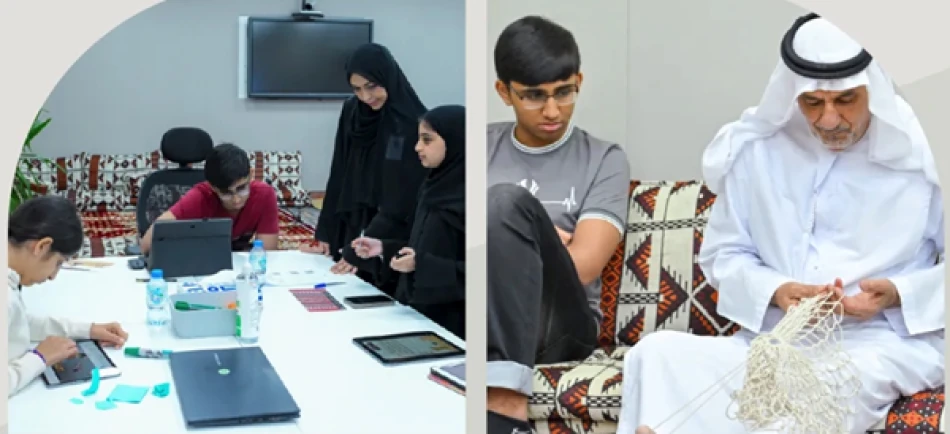
UAE College's Summer Camp Celebrates Heritage, Fuels Digital Innovation
UAE Bridges Tradition and AI: Young Innovators Transform Heritage Through Digital Manufacturing
The Emirates College for Educational Development has launched an ambitious summer camp that merges Emirati cultural heritage with cutting-edge artificial intelligence and digital manufacturing technologies. The program, targeting students aged 12-17, represents a strategic shift in how nations can preserve cultural identity while preparing youth for an AI-driven future—a model that could influence educational approaches across the Gulf region and beyond.
Heritage Meets High-Tech in Abu Dhabi's Fab Lab
The 2025 summer camp, held at the college's digital manufacturing laboratory in Abu Dhabi, operates under the theme "Meeting of Generations: Heritage Told, Future Built." This initiative aligns with the UAE's "Year of Community" campaign and demonstrates how traditional crafts can be reimagined through modern technology.
Students worked with advanced tools including laser cutters, computer-aided design software, and AI applications to transform traditional Emirati patterns into contemporary innovative designs. The program paired young participants with community mentors, senior citizens, and traditional craftsmen who shared personal experiences and cultural knowledge.
Beyond Digital Skills: Building Social Cohesion
The camp's structure reflects a broader understanding that technological advancement must be rooted in cultural continuity. Daily activities included workshops led by traditional craft experts alongside digital manufacturing specialists, plus cultural storytelling sessions that connected participants with community leaders.
Dr. Mai Laith Al-Taie, Director of the Emirates College for Educational Development, emphasized the program's role in supporting Emirati national values while bridging generational gaps. "By linking generations and building bridges that enhance their cultural and historical values and integrate them with the innovation we have achieved in education, we contribute to achieving our wise leadership's vision toward an interconnected society," she stated.
Strategic Implications for Regional Education
This initiative positions the UAE ahead of regional competitors in balancing cultural preservation with technological advancement. While Singapore has excelled at integrating AI into education and the US leads in digital manufacturing programs, few countries have successfully combined heritage preservation with emerging technology education at the youth level.
The Economic Calculus
The program's emphasis on digital manufacturing skills addresses a critical economic need. As the UAE diversifies beyond oil, advanced manufacturing capabilities become essential for maintaining competitive advantage. Training youth in computer-aided design, 3D printing, and electronics design creates a pipeline for high-value industries.
The college's Continuing Education Center, which has delivered over 344 programs to more than 7,000 learners since 2014, serves as an accredited training center for digital manufacturing diplomas. This infrastructure investment signals long-term commitment to technological education.
A Template for Cultural-Tech Integration
The partnership with Abu Dhabi Heritage Authority as the official partner for cultural workshops demonstrates institutional coordination that other nations might emulate. By formally linking heritage preservation with innovation education, the UAE creates a sustainable model for cultural continuity in rapidly changing societies.
Measuring Success Beyond Skills
The program's final presentations, where students showcased completed projects to peers, families, and guests, emphasize practical application over theoretical knowledge. This approach mirrors successful STEM education models while maintaining cultural relevance.
For investors and policymakers watching regional education trends, the UAE's integration of AI and heritage represents a sophisticated approach to human capital development. Rather than viewing tradition and technology as competing forces, this model suggests they can be mutually reinforcing—potentially creating more resilient and innovative societies.
The camp's success could influence similar programs across the Gulf Cooperation Council, where balancing modernization with cultural identity remains a persistent challenge. As AI adoption accelerates globally, the UAE's approach offers a roadmap for maintaining cultural distinctiveness while building technological capabilities.
Most Viewed News

 Layla Al Mansoori
Layla Al Mansoori






